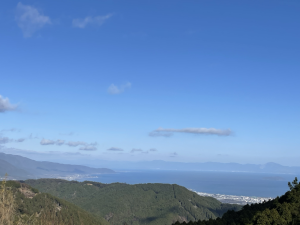Mountain Climbing and River Swimming Safety
Japan is a beautiful country with a wide variety of mountains and rivers. These natural features offer a wealth of opportunities for recreation and enjoyment, but they can also be dangerous if proper safety precautions are not taken. This article provides information on important safety rules to follow when mountain climbing or river swimming in Japan.
Mountain Climbing Safety
Weather Conditions

Japan has a temperate climate, but it can experience a wide range of weather conditions, including rain, snow, and high winds. It is important to check the forecast before you go mountain climbing and be prepared for any weather conditions. If there is a chance of bad weather, it is best to postpone your hike.
Terrain
Japanese mountains can be steep and rocky, with narrow trails and exposed ledges. It is important to wear proper footwear, such as hiking boots with good traction. It is also important to be aware of your surroundings and to use caution when hiking in areas with loose rocks or other hazards.
Wildlife
Japan is home to a variety of wildlife, including bears, boars, and snakes. It is important to be aware of the potential for animal encounters and to take precautions to avoid them. Make noise when you are hiking to let animals know you are coming.
Specific Safety Tips
- Let someone know where you are going and when you expect to be back. This will help in case of an emergency.
- Start early in the morning and allow plenty of time to complete your hike. This will give you plenty of daylight and time to rest if needed.
- Bring plenty of food, water, and other supplies. This will ensure that you have everything you need to stay safe and comfortable on your hike.
- If you are planning on mountain climbing in Japan, it is a good idea to take a course or hire a guide. This will help you to learn the basics of mountain safety and how to prepare for a hike.
- There are many hiking trails in Japan that are suitable for beginners. If you are not sure which trail to choose, ask a local for recommendations.
River Swimming Safety
Currents
Japanese rivers can have strong currents, especially during the rainy season. It is important to be aware of the current and to swim with caution. If you are not a strong swimmer, it is best to avoid swimming in rivers.
Depth
Japanese rivers can be deep, even in shallow areas. It is important to know how to swim before you go in. If you are not sure how deep the water is, do not go in.
Objects
Japanese rivers can contain rocks, debris, and other objects. It is important to be careful not to hit your head or get caught on something. If you are swimming in an area with debris, it is best to wear a life jacket.
Specific Safety Tips
- Swim in designated areas where there are lifeguards on duty. This will help to ensure your safety in case of an emergency.
- Never swim alone. Always have a buddy with you in case of an emergency.
- Be aware of the current and don't swim against it. If you are caught in a current, try to swim with it until you reach a safe area.
- Don't swim in areas where the water is too deep or where there are objects that could pose a hazard.
Additional Tips
In addition to the safety rules mentioned above, there are a few additional tips that can help to keep you safe when mountain climbing or river swimming in Japan.
- Check if the mountain or river you plan to visit has any warnings issued by local authorities. Also check the information on dangerous mountains[1] and maps of dangerous rivers.[2]
- Take a first-aid kit with you. This will help to treat any injuries that you may sustain.
- Learn how to use a map and compass. This will help you to navigate in case you get lost.
- Let someone know if you plan to change your plans. This will help in case of an emergency.
Additional Information
Japanese culture: In Japan, it is considered rude to disturb others while they are enjoying nature. Be sure to keep your noise level down and avoid littering.
Environmental impact: Japan is a beautiful country with a delicate environment. Be sure to leave no trace of your presence when you go hiking or swimming.
